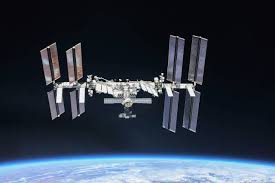Exploring the Unknown: Outer Space Research
Outer space has always captivated human imagination, offering a vast and mysterious expanse waiting to be explored. Through dedicated research and scientific endeavours, we have made significant strides in understanding the complexities of the universe beyond our planet.
Space research encompasses a wide range of disciplines, from astrophysics to planetary science, each contributing valuable insights into the workings of the cosmos. Telescopes, satellites, and space probes have allowed us to observe distant galaxies, study planetary atmospheres, and uncover the secrets of black holes.
One of the most exciting aspects of outer space research is the search for extraterrestrial life. Scientists are constantly scanning the skies for signs of habitable planets and potential biosignatures that could indicate the presence of life beyond Earth. The discovery of microbial life on Mars or subsurface oceans on moons like Europa could revolutionise our understanding of life in the universe.
Furthermore, space research plays a crucial role in addressing pressing global challenges such as climate change and resource depletion. Satellite data helps monitor environmental changes, track deforestation patterns, and predict natural disasters, providing invaluable information for sustainable development and conservation efforts.
As we continue to push the boundaries of exploration and innovation in outer space research, we are not only expanding our scientific knowledge but also inspiring future generations to dream big and reach for the stars.
Six Key Strategies for Enhancing Outer Space Research and Discovery
- 1. Collaborate with international space agencies for access to diverse resources and expertise.
- 2. Utilise advanced technology such as telescopes and satellites for data collection.
- 3. Analyse space phenomena like black holes, supernovae, and exoplanets to expand knowledge.
- 4. Conduct experiments in microgravity environments to understand effects on living organisms.
- 5. Develop sustainable practices to minimise space debris and environmental impact.
- 6. Inspire the next generation through education and outreach programmes about space exploration.
1. Collaborate with international space agencies for access to diverse resources and expertise.
Collaborating with international space agencies is a crucial tip in outer space research, as it provides access to a wealth of diverse resources and expertise. By partnering with agencies from different countries, scientists can leverage specialized technologies, data, and knowledge that may not be available domestically. This collaboration fosters a global exchange of ideas and innovations, leading to more comprehensive research projects and breakthrough discoveries that benefit the entire scientific community.
2. Utilise advanced technology such as telescopes and satellites for data collection.
In the realm of outer space research, leveraging advanced technology is paramount for gathering valuable data and insights. By utilising cutting-edge tools like telescopes and satellites, scientists can observe distant galaxies, study planetary atmospheres, and uncover the mysteries of the cosmos. These sophisticated instruments enable us to peer deeper into the universe than ever before, providing a wealth of information that enriches our understanding of the vast expanse beyond our planet.
3. Analyse space phenomena like black holes, supernovae, and exoplanets to expand knowledge.
Analysing space phenomena such as black holes, supernovae, and exoplanets is essential in expanding our knowledge of the universe. By studying these cosmic wonders, scientists can uncover valuable insights into the fundamental principles governing the cosmos. Black holes challenge our understanding of gravity and spacetime, while supernovae provide crucial information about stellar evolution and the formation of elements. Exoplanets offer a glimpse into the diversity of planetary systems beyond our own, shedding light on the potential for habitable worlds and life elsewhere in the universe. Through rigorous analysis of these space phenomena, researchers can deepen their understanding of the intricate mechanisms at play in the vast expanse of outer space.
4. Conduct experiments in microgravity environments to understand effects on living organisms.
Conducting experiments in microgravity environments is a crucial aspect of outer space research, as it allows scientists to study the effects of weightlessness on living organisms. By observing how organisms behave and adapt in the absence of gravity, researchers can gain valuable insights into the fundamental biological processes that govern life in space. These experiments not only help us understand the challenges faced by astronauts during long-duration space missions but also contribute to advancements in fields such as medicine, biotechnology, and agriculture back on Earth.
5. Develop sustainable practices to minimise space debris and environmental impact.
Developing sustainable practices to minimise space debris and environmental impact is crucial in the realm of outer space research. With an increasing number of satellites and spacecraft being launched into orbit, the risk of collisions and the generation of space debris poses a significant threat to future space missions and the long-term sustainability of outer space activities. By implementing responsible practices such as designing satellites with deorbiting capabilities, promoting international cooperation for debris mitigation, and adopting efficient waste management strategies, we can ensure a cleaner and safer environment for continued exploration and scientific discovery in outer space.
6. Inspire the next generation through education and outreach programmes about space exploration.
To inspire the next generation and foster a passion for outer space research, it is essential to engage in education and outreach programmes focused on space exploration. By providing opportunities for young minds to learn about the wonders of the universe, we can ignite curiosity, spark creativity, and cultivate a new generation of scientists and explorers eager to push the boundaries of our understanding of the cosmos. Through interactive workshops, school visits, and public events, we can share the excitement of space research and encourage young individuals to dream big and pursue careers in astrophysics, astronomy, and related fields.

No Responses